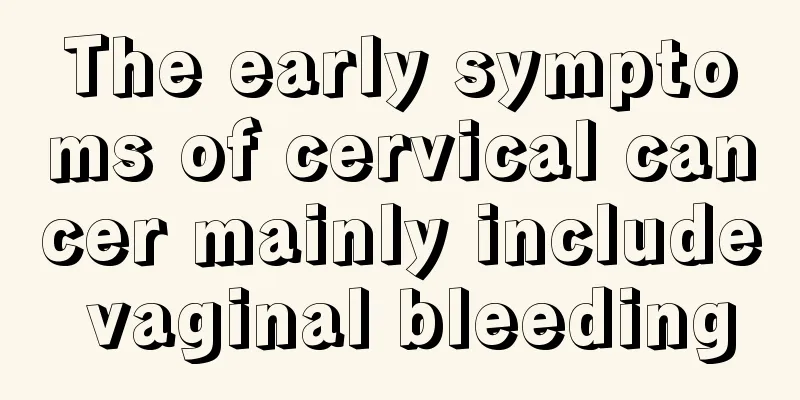Advantages and disadvantages of preoperative and postoperative chemoradiotherapy for rectal cancer

|
Rectal cancer is caused by the malignant transformation of rectal tissue cells. With the improvement of the quality of life, the incidence of rectal cancer has increased year by year. Only by understanding the advantages and disadvantages of preoperative and postoperative chemotherapy and radiotherapy for rectal cancer can we implement a reasonable treatment plan in clinical treatment to achieve the best treatment effect. Advantages of preoperative chemoradiotherapy for rectal cancer: 1. The primary lesion shrinks after radiotherapy and chemotherapy, increasing the chance of anal preservation surgery; 2. It increases the sensitivity of tumor cells to radiotherapy. Disadvantages of preoperative chemoradiotherapy for rectal cancer: 1. Prolong the waiting time for surgery; 2. Because there may be micro-metastases to other organs before surgery, and radiotherapy and chemotherapy may lead to low immunity of the body, which may lead to the enlargement of metastatic lesions; 3. It may increase the incidence of postoperative complications; 4. There is a possibility of over-diagnosis and treatment. Advantages of postoperative chemoradiotherapy for rectal cancer: Relatively accurate and individualized chemoradiotherapy can be implemented based on the results of intraoperative exploration and postoperative pathological diagnosis. Disadvantages of postoperative chemoradiotherapy for rectal cancer: Intraoperative manipulation may cause the small intestine to adhere to the pelvic cavity, thereby causing it to be damaged by radiation during radiotherapy. Radiotherapy has its pros and cons. In clinical practice, a specific comprehensive treatment plan can be implemented according to the specific situation of the patient. For example, for patients with rectal cancer diagnosed as T3 and (or) N1-2 by ultrasound, surgery should be performed first, followed by adjuvant comprehensive treatment including radiotherapy; for patients with rectal cancer diagnosed as T3 by ultrasound or clinical T4, adjuvant treatment (including radiotherapy or chemoradiotherapy) can be performed before surgery, followed by surgery, and adjuvant comprehensive treatment can be added after surgery; for individual early localized tumors, simple intracavitary radiotherapy can be performed; for patients with early rectal cancer, a local surgical resection combined with radiotherapy can be performed, mainly to increase the chance of retaining the anus. |
<<: Disease prevention of colon cancer
>>: Preventing esophageal cancer starts with protecting the esophagus
Recommend
Is it normal to have back pain after medical abortion?
Cases of spontaneous abortion are common among mo...
Can the last upper tooth be extracted?
In the eyes of many people, toothache is not cons...
What's wrong with the pimple behind the ear
The skin behind the ears is very sensitive. But s...
The harm of drinking and bathing
Smoking and drinking have become indispensable be...
What are the precautions for tonsillitis?
Tonsils are located in the human oral pharynx. It...
What are the symptoms of mid-to-late stage gastric cancer
What are the symptoms of mid-to-late stage gastri...
What causes high glutamine transpeptidase?
As the living standards in real society continue ...
How to scrape the oil from the belly
If you have too much fat on your belly, it is act...
How to treat tinnitus? These methods work best!
Tinnitus has a huge impact on life. Once discover...
Is it okay to drink dehumidifying tea during menstruation? What should we pay attention to?
Women need to make appropriate adjustments in the...
What is hypoglycemia reaction
Many people have experienced hypoglycemia. Hypogl...
If my stomach hurts when I stand but not when I lie down, could it be stomach cancer?
If your stomach hurts when you stand but not when...
What can't people with thyroid cancer eat
There are no clear dietary taboos for patients wi...
Is skin cancer contagious by touch?
We have heard that people with skin diseases are ...
My hair becomes oily right after washing
The correct way to wash your hair is two to three...









